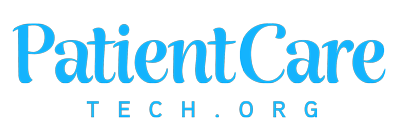The Vital Link Between Sleep, Nutrition, and Your Healthcare Performance
You dedicate your days – and often your nights – to the well-being of others. As Patient Care Technicians, nurses, doctors, and all healthcare heroes, you are the frontline of compassion and healing. But in the whirlwind of demanding shifts, critical decisions, and the constant giving of yourselves, are you prioritizing your own fundamental needs? We’re talking about sleep and nutrition – the often-overlooked cornerstones of your physical health and, crucially, your job performance.
It might seem like there aren’t enough hours in the day to grab a decent meal or get a full night’s rest. The pressure is relentless, and the needs of your patients always come first. But what if we told you that investing in your sleep and nutrition isn’t a selfish act, but rather a crucial component of providing the best possible care?
The Drowsy Doctor (or PCT): The Impact of Sleep Deprivation
Think about it. How sharp is your focus after a string of long shifts and minimal sleep? Can you recall details quickly? Are you as patient and empathetic as you strive to be? Sleep deprivation has profound effects on our cognitive abilities, including:
- Impaired Concentration and Focus: Trying to stay alert and attentive to crucial patient details becomes a monumental task when you’re running on fumes. Mistakes become more likely.
- Reduced Reaction Time: In emergency situations, every second counts. Lack of sleep slows down your reflexes, potentially impacting patient safety.
- Compromised Decision-Making: Fatigue clouds judgment. Making sound clinical decisions requires a clear and well-rested mind.
- Increased Irritability and Emotional Strain: Sleepless nights can leave you feeling short-tempered and less able to provide the compassionate care your patients deserve. This can also impact team dynamics.
- Weakened Immune System: Chronic sleep loss weakens your body’s defenses, making you more susceptible to illness. Showing up for your patients means staying healthy yourself.
Fueling Your Body for Optimal Performance: The Power of Nutrition
Just as a car can’t run without the right fuel, your body and brain need proper nourishment to function optimally. Grabbing whatever is quick and convenient during a hectic shift might seem like the only option, but consistently poor nutrition can lead to:
- Decreased Energy Levels: Processed foods and sugary snacks provide a temporary energy spike followed by a crash, leaving you feeling sluggish and unable to sustain your energy throughout a long shift.
- Impaired Cognitive Function: Your brain needs a steady supply of nutrients to function at its best. Poor nutrition can affect memory, focus, and overall cognitive performance.
- Increased Stress and Anxiety: Certain nutrients play a vital role in regulating mood and stress response. A diet lacking in essential vitamins and minerals can exacerbate stress and anxiety.
- Weakened Immune System (Again!): Just like sleep, proper nutrition is fundamental for a strong immune system. A well-nourished body is better equipped to fight off infections.
- Increased Risk of Chronic Diseases: Over time, poor dietary habits can contribute to the development of chronic conditions that can impact your long-term health and career.
The Positive Feedback Loop: Investing in Yourself, Investing in Your Patients
The good news is that prioritizing sleep and nutrition creates a positive feedback loop. When you are well-rested and properly nourished:
- Your focus sharpens, leading to fewer errors and improved patient safety.
- Your energy levels are sustained, allowing you to handle the demands of your job with greater ease.
- Your decision-making abilities are enhanced, leading to better patient outcomes.
- Your emotional resilience increases, allowing you to provide more compassionate and empathetic care.
- You are less likely to get sick, ensuring you can consistently be there for your patients and your team.
Small Steps, Big Impact:
We know that overhauling your sleep and eating habits overnight is unrealistic. Start with small, manageable steps:
- Prioritize Sleep: Even an extra 30 minutes of quality sleep can make a difference. Try to establish a consistent sleep schedule, even on your days off. Create a relaxing bedtime routine.
- Pack Nutritious Snacks and Meals: Avoid relying solely on vending machines or the cafeteria. Prepare healthy meals and snacks to bring to work. Think fruits, vegetables, whole grains, and lean protein.
- Stay Hydrated: Dehydration can lead to fatigue and impaired cognitive function. Keep a water bottle handy and sip throughout your shift.
- Be Mindful of Caffeine and Sugar Intake: While they might provide a temporary boost, they can ultimately lead to energy crashes and disrupt sleep.
- Advocate for Breaks: Ensure you are taking your allocated breaks to rest and refuel.
You are the heart and soul of healthcare. By recognizing the crucial link between your physical well-being and your ability to provide exceptional patient care, you are not just taking care of yourselves – you are ultimately taking better care of your patients. Make sleep and nutrition a priority. Your body, your mind, and your patients will thank you for it.



